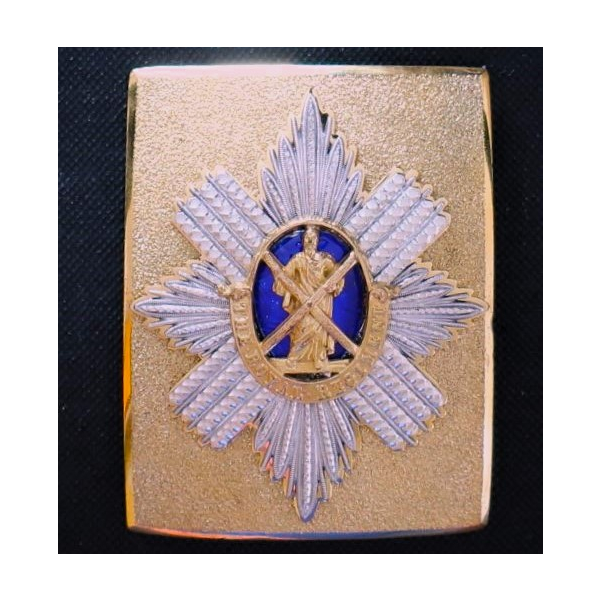Royal Scots Mid Victorian Officers Shoulder Belt Plate
The Royal Scots Mid Victorian Officers Shoulder Belt plate. This is the crème de la crème of a Shoulder Belt Plate. A Gilt seeded backplate with burnished edge. On this a silvered rayed star. To the centre an oval in gilt with St Andrew and a scroll “The Royal Regiment” to the centre Royal Blue enamel. Worn from 1844-1855. A truly beautiful thing.
The Royal Scots is one of the oldest regiments in the British Army, with a history dating back to 1633. The mid-Victorian officer's shoulder belt plate was a significant part of the uniform. This level of detail and craftsmanship in a shoulder belt plate makes it a prestigious and distinctive part of an officer's uniform. Such elements were not only functional but also served as symbols of honour, tradition, and regimental pride.
Price includes overnight tracked delivery to a UK address.



